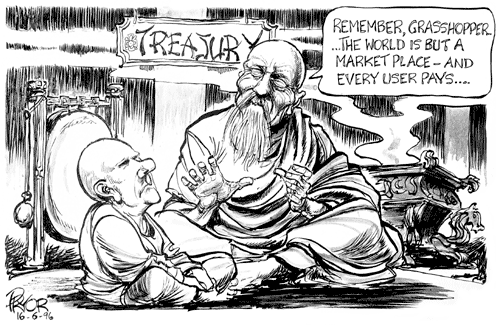Im pretty sure Bob wasnt treasurer either. He had a couple, Bill Hayden being the last before he was dismissed. Im pretty sure Bob was leader of the ACTU till being parachuted into parliament and then parachuted into the leadership deposing Bill Hayden just before the 83 election.
I wasn't saying Bob Hawke was Whitlam's Treasurer, but that AB was getting confused which PM had Keating as a Treasurer (it wasn't Gough, it was Bob).
And Bob Hawke did serve (if that is the word) as Treasurer.
After Keating's failed coup in June 1991 for about 48 hrs.

